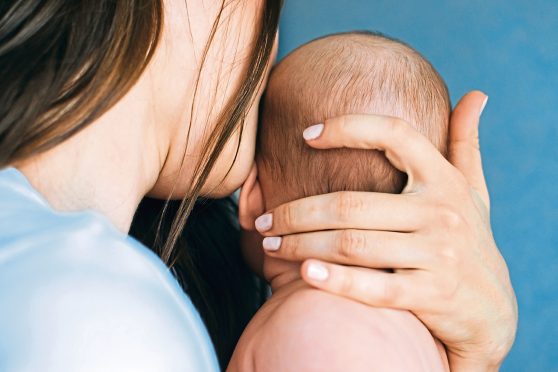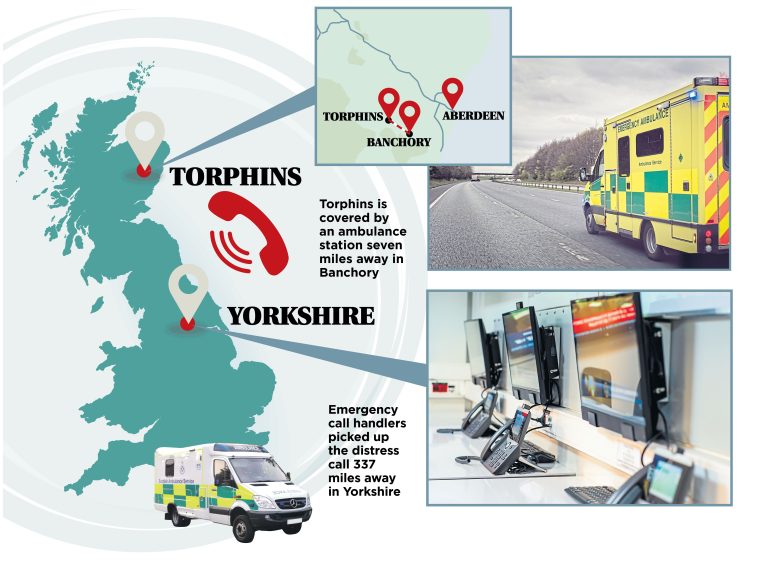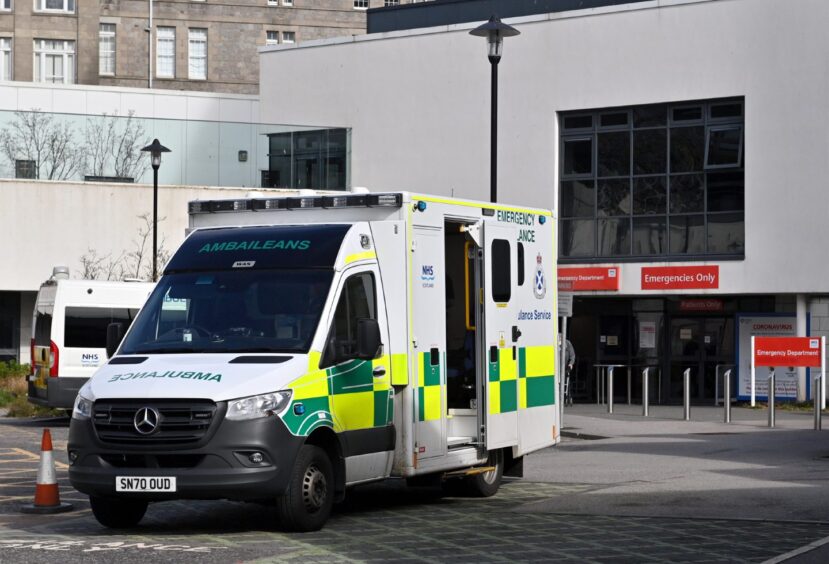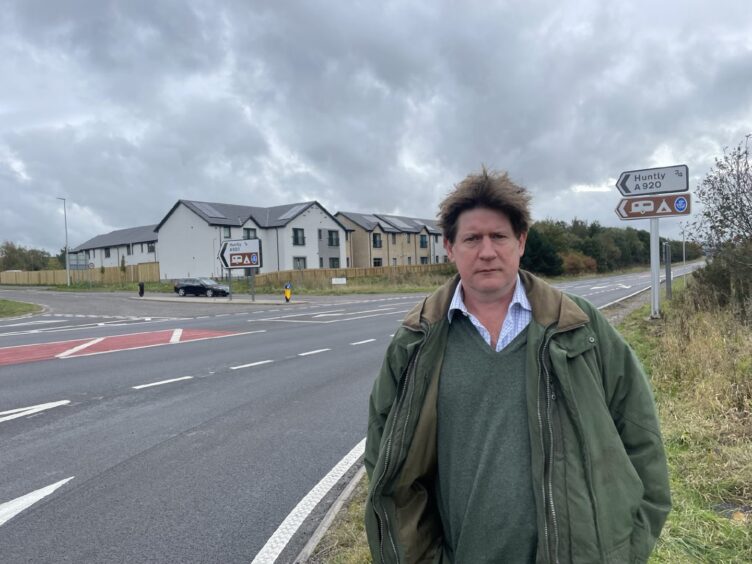
A family has revealed how the birth of their baby girl turned into a harrowing nightmare as they fought to save the newborn’s life while facing a “frightening” long wait for an ambulance.
The family, from Torphins in Aberdeenshire, say NHS call handlers hundreds of miles away in Yorkshire struggled to find their rural address.
Health bosses are investigating after emergency handlers in northern England, rather than Scotland, answered the 5am distress call while the expectant mum was in labour at home three weeks ago.
The baby was born at 5.18am with breathing difficulties.
The woman’s partner and future mother-in-law were given CPR instructions, but, despite living just seven miles from an ambulance station, medics didn’t arrive until 5.43am.
The family, who asked not be named, are demanding answers over why it took so long for help to arrive.
Where did the ambulances come from?
Although Torphins is covered by the station in nearby Banchory, it is understood the attending crews came from further afield. The other closest depot – Aboyne – is only used for patient transport.
Markings on the vehicles suggest the first ambulance on the scene came from Ballater – which is around 28 minutes away. It arrived with one paramedic and a fire and rescue officer as a shadow.

The second ambulance had Elgin on its side and a rapid response vehicle also in attendance appeared to be from Bridge of Don, 30 miles away.
The baby’s gran said the events felt like something “out of a movie” and spoke of how they have been left with lingering fears over the baby’s health.
She said: “It feels like an eternity when you’re wondering if anyone is coming.
“The baby’s mum had just given birth and she instantly jumped in.
“None of us are medically trained.
“I did an emergency course many years ago but I’ve never done anything like CPR on a baby that’s just minutes old. All of us were petrified. It was very distressing.
“I just think ‘Well she’s here now’. It’s different for her mum and dad. They have to live in that house where something could have gone tragically wrong.”
The worker reportedly asked to speak to the patient despite her being in labour at the time and when the expectant mum answered in a raised voice, they told her there was no reason to shout.
Mum and baby were transferred to hospital in separate ambulances as the heating in one of the vehicles was not working – and the mother had to be wrapped in four blankets.
The family say the rapid response workers also had to leave their vehicle at the home and so they could travel in the ambulances to ensure emergency treatment could be given if necessary.
A frightening ordeal
The baby’s gran said: “My complaint has nothing to do with the NHS, nothing to do with the paramedics or any of the staff that attended. They were all amazing.
“It’s just the fact that they seem to think closing down rural locations is OK. It’s not acceptable when you live in rural areas, particularly in winter.
“On this occasion, we were very lucky. The baby seems to be OK but she’s just coming up to three weeks old. You’ll never know if some kind of damage has been caused.”
Aberdeenshire West MSP Alexander Burnett has raised the “frightening experience” with Scottish Ambulance Service chief executive Michael Dickson.
Burnett said: “No one should be left to perform CPR on a newborn. It is a miracle the baby survived.”
Rural ambulance provision has come under the spotlight in recent years.
Pam Anderson, a 74-year-old care home manager, died on her way to hospital in Aberdeen after being forced to wait 40 minutes for a two-person crew from Tomintoul.
The first ambulance to arrive had only one crew member so was not allowed to take her.
Meanwhile, previous winters have seen crews warn the service is just a “small sprinkling of snow” away from grinding to a complete halt.
The Scottish Ambulance Service said it is deeply sorry for the distressing experience the Torphins family had.
It said it has well-established joint procedures in place with other UK nations to assist will call handling when centres are experiencing extremely high volumes of 999 calls.
The service added: “We recognise how distressing this experience must have been, and we are deeply sorry this was the case. Be reassured any learnings identified through our engagement with the family will be implemented in full.”
The Scottish Government said it is “very sorry” to hear of the incident and expects any lessons learned to be used to make improvements.

Enjoy the convenience of having The Sunday Post delivered as a digital ePaper straight to your smartphone, tablet or computer.
Subscribe for only £5.49 a month and enjoy all the benefits of the printed paper as a digital replica.
Subscribe © DCT Media
© DCT Media © Supplied by Scottish Conservativ
© Supplied by Scottish Conservativ